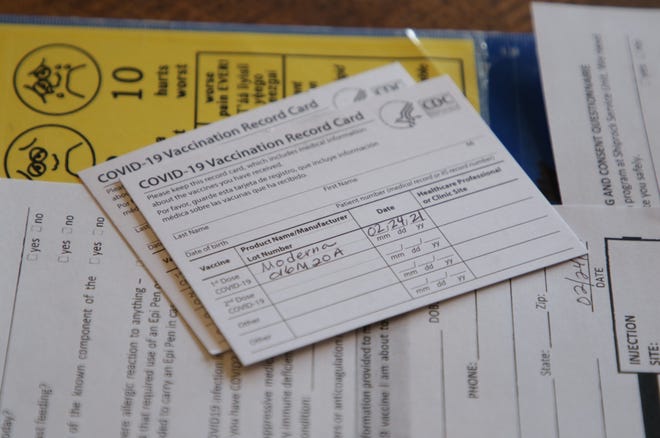Indian Health Service discontinues use of Johnson & Johnson vaccine

FARMINGTON — The Indian Health Service has suspended using Johnson & Johnson's coronavirus vaccine after federal health authorities recommended a pause in using it "out of an abundance of caution" after rare but dangerous blood clots were reported in cases in the United States.
Health care on and near the Navajo Nation is provided through IHS facilities and those operated by tribal organizations under the agency's regional unit.
The single-dose J&J vaccine was one of three COVID-19 vaccines the agency has been administering to those 16 and older.
"IHS would like to stress that these events appear to be extremely rare; however, COVID-19 vaccine safety is a top priority for the federal government and we are taking all reports of adverse events seriously," the agency stated in a press release issued the evening of April 13.
The agency has monitoring systems in place and there have been no reports at this time of the adverse reaction from those who received the J&J vaccine at IHS facilities across the country, the release states.
The Centers for Disease Control and Prevention and the Food and Drug Administration are reviewing data involving six reported cases of blood clots called cerebral venous sinus thrombosis, the agencies stated in a joint press release.
All six cases were among women ages 18 to 48, and symptoms occurred six to 13 days after vaccination.
The Navajo Nation Office of the President and Vice President reiterated the IHS announcement in a separate press release that stated "all tribal health facilities" on the tribal land will pause usage.

"We fully support pausing use of the Johnson & Johnson vaccine on the Navajo Nation until we receive the findings of the investigation," tribal President Jonathan Nez said in the release.
He added that IHS personnel informed him that approximately 4,000 doses of the J&J vaccine had been administered on the Navajo Nation.
"We will continue working with the Navajo Department of Health, Navajo Area IHS and tribal health facilities to monitor the status of those who received this particular vaccine," Nez said.
He mentioned the pause in J&J vaccine distribution during a live radio forum on Tuesday evening.
Nez also mentioned that the COVID-19 variant first identified in California was found in a sample from Gallup Indian Medical Center.
A day later, he stated the sample was from a case reported in the Eastern Agency. No further information has been released by the tribal government.
New Mexico Department of Health spokesperson David Morgan said on April 14 that the department was informed about the variant.
Cases of the more contagious variants have been identified in the western portion and in the central region of the Navajo Nation.
The release from the IHS states that employees have been advised to contact those who scheduled appointments to receive the J&J vaccine and offer Pfizer or Moderna vaccines when "available and appropriate."
IHS has been administering the Pfizer and Moderna vaccines since December and suspension of the J&J vaccine will not have a significant impact on its overall vaccination plan or on its goal to fully vaccinate 44% of "active adult patients" by the end of April.
The J&J vaccine makes up approximately 1.5% of shots administered and less than 5% across the United States, according to the IHS press release.
Data from the IHS shows the Navajo Area unit has received 246,765 doses of the Pfizer, Moderna and J&J vaccines and 189,124 doses have been administered as of April 12.
Noel Lyn Smith covers the Navajo Nation for The Daily Times. She can be reached at 505-564-4636 or by email at nsmith@daily-times.com.
Support local journalism with a digital subscription to The Daily Times.